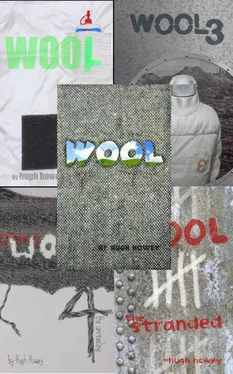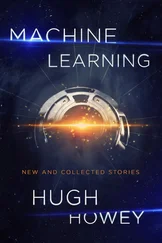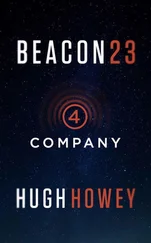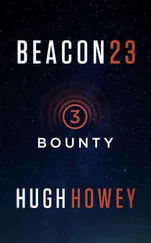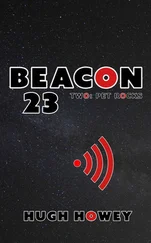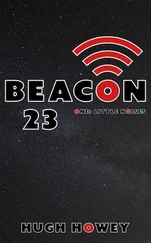And then, after some consideration:
“I’m sorry I fell asleep.
“A glooming peace this morning with it brings;
The sun, for sorrow, will not show his head.
Go hence, to have more talk of these sad things;
Some shall be pardon'd, and some punished.”
It was the morning of the worst cleaning of Lukas’s life—and for once he considered going into work, to ignore the paid holiday, to pretend it was a day like any other. He sat at the foot of his bed as he worked up the courage to move, one of his many star charts in his lap. Lightly with his fingers, so as to not smear the marks away, he caressed the charcoal outline of one star in particular.
It wasn’t a star like the others. Those were simple dots on a meticulous grid with details of date sighted, location, and intensity. This wasn’t that kind of star—not one that lasted nearly so long. It was the five pointed kind, the outline of a sheriff’s badge. He remembered drawing the shape while she was talking to him one night, the steel on her chest glowing faintly as it caught the weak light from the stairwell. He remembered her voice being magical, the way she carried herself mesmerizing, and her arrival into his boring routine had been as unexpected as the parting of clouds.
He also remembered how she had turned away from him in her cell two nights ago, had tried to save his feelings by pushing him away—
Lukas had no more tears. He had spent most of the night shedding them for this woman he hardly knew. And now he wondered what he would do with his day, with his life. The thought of her out there, doing anything for them—cleaning—made him sick. He wondered if that was why he’d had no appetite for two days. Some deep part of his gut must know he’d never keep anything down, even if he forced himself to eat.
He set the star chart aside and dropped his face into his palms. He rested there, so tired, trying to convince himself to just get up and go to work. If he went to work, at least he’d be distracted. He tried to remember where he’d left off in the server room last week. Was it the number eight tower that had gone down again? Sammi had suggested he swap out the control board, but Lukas had suspected a bad cable. That’s what he’d been doing—he remembered now—toning out the Ethernet runs. It’s what he should be doing right then, that very day. Anything but sitting around on a holiday, feeling like he could be physically ill over a woman he’d done little more than tell his mother about.
Lukas stood and shrugged on the same pair of coveralls he’d worn the day before. He remained there a moment, staring at his bare feet, wondering why he’d gotten up. Where was he going? His mind was completely blank, his body numb. He wondered if he could stand there, unmoving, his stomach twisted in knots, for the rest of his life. Someone would eventually find him, wouldn’t they? Dead and stiff, standing upright, a statue of a corpse.
He shook his head and these black thoughts loose and looked for his boots.
He found them; it was an accomplishment. Lukas had done something by getting himself dressed.
He left his room and ambled toward the landing, weaving around kids squealing from another day off school, parents trying to corral them and get their boots and coveralls on. The commotion was little more than background noise for Lukas. It was a hum, like the aches in his legs from gathering signatures the days before. He stepped out onto the apartment’s landing and felt a habitual tug upwards toward the cafeteria. All he could think about was all he had thought of for the past week: making it through another day so he could go up-top for the chance to see her.
It suddenly occurred to Lukas that he still could. He wasn’t one for sunrises—he much preferred the twilight and the stars—but if he wanted to see her, all he had to do was climb to the cafeteria and scan the landscape. There would be a new body there, a new suit with the shine still on it glimmering in whatever weak rays the sun dribbled through those blasted clouds.
He could see the image clearly in his head: her uncomfortable sprawl—legs twisted, arm pinned, helmet turned to the side, gazing back at the silo. Sadder still, he saw himself decades later, a lonely old man sitting in front of that gray wallscreen and drawing not star charts but landscapes. The same landscapes over and over, looking up at a wasting might-have-been, sketching that same still pose while weeping old-man tears that dripped and turned charcoal to mud.
He would be like Marnes, that poor man. And thinking of the Deputy, who died with no one to bury him, it reminded Lukas of the last thing Juliette had told him. She had begged him to find someone, to not be like her, to never be alone.
He gripped landing fifty’s cool steel railing and leaned over. Looking down, he could watch the stairwell drill its way deep into the earth. The landing for fifty-six was visible below, the several landings between jutting off in unseen angles. It was hard to gauge the distance—Lukas was used to the much larger scale of stars—but he figured it was more than enough. No need to walk down to eighty-two, which most jumpers preferred for its long clear path down to ninety-nine.
Suddenly, he saw himself in flight, tumbling down, arms and legs splayed. He reckoned he would just miss the landing. One of the railings would catch him and saw him near in half. Or maybe if he jumped out a little further, maybe if he aimed his head, he could make it quick.
He straightened, feeling a twinge of fear and a rush of adrenaline from picturing the fall, the end, so vividly. He glanced around and checked the morning traffic to see if anyone was watching him. He had seen other adults peer over railings after things they’d lost. He’d always assumed bad thoughts were going through their heads. Because he knew, growing up in the silo, that only children dropped physical things from the landings. By the time you got older, you knew to keep a grip on all that you could. Eventually, it was something else that slipped away, something else you lost that tumbled down through the heart of the silo, that made you ponder leaping after—
The landing shivered with the beat of a hurrying porter; the sound of bare feet slapping against steel treads came next and spiraled closer. Lukas slid away from the railing and tried to focus on what he was doing that day. Maybe he should just crawl back in bed and sleep, kill some hours with unconsciousness.
As he attempted to summon some sliver of motivation, the speeding porter flew past, and Lukas caught a glimpse of the boy’s face twisted in consternation. Even as he sped out of sight—his pace swift and reckless—the image of his worry remained vividly lodged in Lukas’s mind.
And Lukas knew. As the rapid patter of the boy’s feet wound deeper into the earth, he knew something had happened that morning, something up-top, something newsworthy about the cleaning.
A seed of hope caught a taste of moisture. Some wishful kernel buried deep, where he was loathe to acknowledge it lest it poison or choke him, began to sprout. Maybe the cleaning never happened. Was it possible his petition had been reconsidered? Had the weight of all those signatures gathered over a spread of a hundred levels finally worn the judges down? What if Bernard had actually come through for him, had swayed the presiding judge to lower Juliette’s offense?
Lukas recalled his appeals to Bernard, begging him as a friend, as his boss, to intervene on her behalf. He had asked him to add his own signature to the petition, which he finally had. But Bernard had warned him that her fate was out of his hands, that the judges would decide, that his authority as interim mayor made him practically powerless.
Читать дальше
